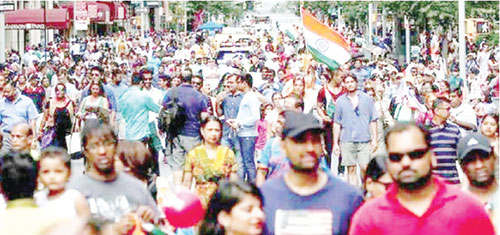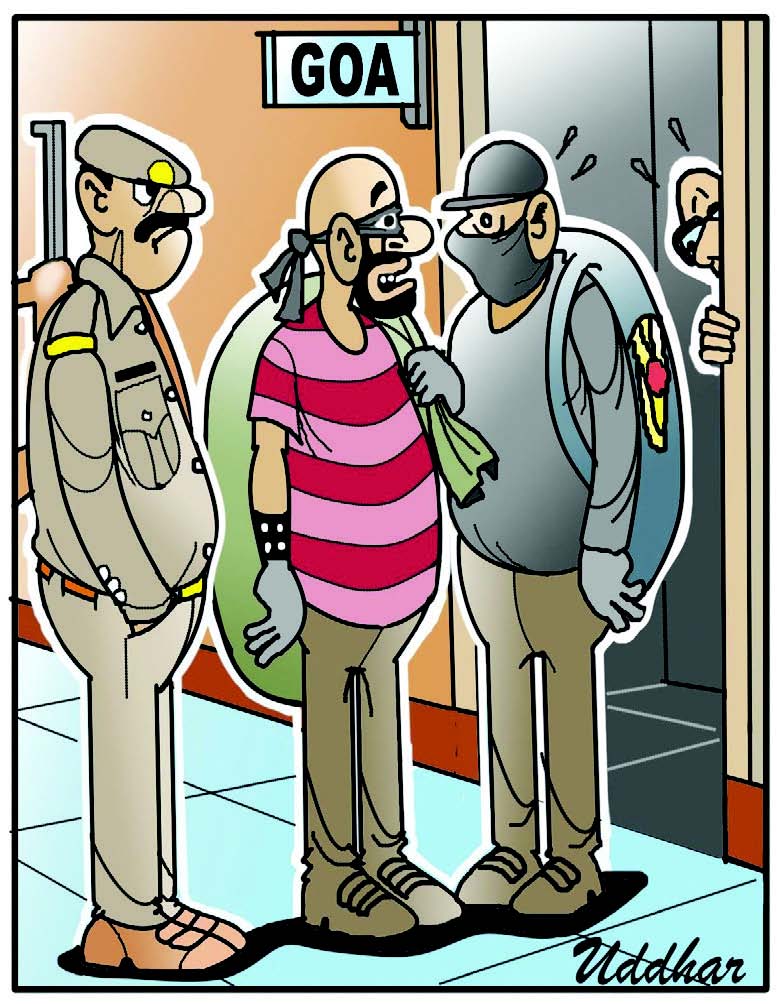
Sujay Gupta
The contours of the quiet move to alter the relationship that overseas Indians had with their motherland has its roots that are deeper than the external manifestation of the fallout of the notification.
Across the globe Indians, and what is relevant to us here in Goa, hundreds of thousands of Goans, are reading this notification emotionally, more than legally. The new notification for all practical purposes classifies them as “Foreign Nationals”. Even if any of our Goan brothers and sisters are not unduly affected (which is unlikely though) with some of the shocking points in the notification, the change in identity to “foreign national” is a poison-tipped arrow through their fabric of nationhood and their relationship with their motherland Goa. And this is a hurt which will rankle far more and across not just years, but for generations.
The OCI scheme was introduced with the fundamental purpose of confirming and respecting the ties that Indians abroad have with their motherland. At the core of this lies something fundamental. You view your countrymen from where they belong rather than the colour of their passports, viewing them, broadly speaking, at par with non-residents Indians.
What this notification does, rather carelessly, is trample or even maliciously tease, the sense of belonging of Goans with foreign passports. The sense of belonging to Goa that they have when they are in a minority and a migrant in places where other communities consider you an outsider.
There is also this idea called home. A place you consider your own. A place where you feel safe and at the same time confident to return to. And when you are away, “home” is the strongest backup option that those who’ve left it, can fall back upon. When a Goan abroad says ‘I’m going home’, (the most passionate happy thing that we can ever say to ourselves) will she have the same sense of comfort when her home country sees her as a foreign national?
Goans abroad, as are Indians, are still coming to terms with how did the government issue a notification on the OCI scheme which goes against the fundamentals of why the OCI was introduced in the first place. It was done, in August 2005 by amending the Citizenship Act, 1955 and launched during the Pravasi Bharatiya Divas convention 2006 at Hyderabad. All Persons of Indian Origin (PIOs) who were citizens of India on 26th January 1950 or thereafter or were eligible to become citizens of India on 26th January 1950 except who is or had been a citizen of Pakistan, Bangladesh or such other country as the Central Government may, by notification in the Official Gazette, could register as OCIs.
Now the Amendment to Section 7B of the Citizenship Act 1955 supersedes three earlier notifications of April 11, 2005, January 5, 2007, and January 5, 2009, laying down the rights of OCIs. What is deeply concerning are provisions where a special permit is needed to undertake “any research” or “missionary” or “Tablighi” or “journalistic activities” or to visit any area in India notified as protected, restricted or prohibited.
Now pause for a moment to see what these areas are: Arunachal Pradesh, Parts of Himachal Pradesh, Parts of Jammu & Kashmir, Manipur, Mizoram, Nagaland, Rajasthan Sikkim and Uttarakhand. Vast swathes of the country will no longer be freely accessible to OCIs who will now be “foreign nationals”.
They will also be considered at par with NRIs for appearing in the all-India entrance tests such as National Eligibility cum Entrance Test (NEET), Joint Entrance Examination (JEE) etc, or such other tests to make them eligible for admission only against any Non-Resident Indian seat or any supernumerary seat. This will impact Goans abroad who want their children to come back to India and study in India institutions. So much for the clarion call given to OCI holders in Houston, Chicago and New York to return home and “contribute” to India.
The telling blow though, as many feel is this. The notification now equates OCIs to “foreign nationals” in respect of “all other economic, financial and educational fields” for the purposes of the Foreign Exchange Management Act, 2003.The purpose behind this is ostensibly and purportedly go curb the activities of NGOs and other organisations whose beneficiaries may be OCI cardholders or evangelists and other religious practitioners or perhaps people participating or engaging in religious activities, And finally it could be targeted at OCI journalists practising their profession when ironically doctors, architects etc, can practise theirs. And remember even when it comes to advocates, it is the Indian Advocates Act that bars non-Indians from practising in India but not the Citizenship Act.
The hurtful irony is that the apprehension leading up to paranoia seems odd at the very least and bordering on the bizarre because the privilege of OCI comes with its set of safeguards with checks and balances to prevent misuse of these privileges. These checks and balances can easily be applied or sought to be applied to case by case-by-case violations. These can be treated as outliers because they are just that. All violations are aberrations. Ringfencing all OCIs with a notification that essentially demeans, rather than clamp down heavily on real violators isn’t fair game. It's akin to cutting a rightful umbilical cord that Indians and Goans have which cements them to their roots.
For instance, look at British-born writer Aatish Ali Taseer whose overseas citizen status has been revoked for concealing that his late father was of Pakistani origin in his PIO (Person of Indian Origin) application. While it can be argued that his father, was an extremely well known Pakistan politician, Salmaan Taseer, something which the MEA was well aware of when OCI was granted to him, the government at least had a fig-leaf of reasoning. It’s another matter that Taseer was brought up by his Indian journalist mother, as a single parent in India (Delhi) and not Pakistan.
After his OCI was stripped, his words were haunting “Why is India sending me to exile?” Today many Goans across Canada, UK, Australia, New Zealand and the USA may well ask the same question.
At the core of this alienation lies in the “otherisation” of Indians with foreign passports acquired for economic reasons alone. And otherisation, in any form hurts. And an OCI card, which was a passport of belonging so proudly held, will transform into a tool of otherisation.
These de-facto divisions do not make a country richer, or its fabric more inclusive. India must learn to realise who its insiders are and perhaps not equate differences of opinion or even genuine dissent as a reason to cut the official cord of belonging or identity.
